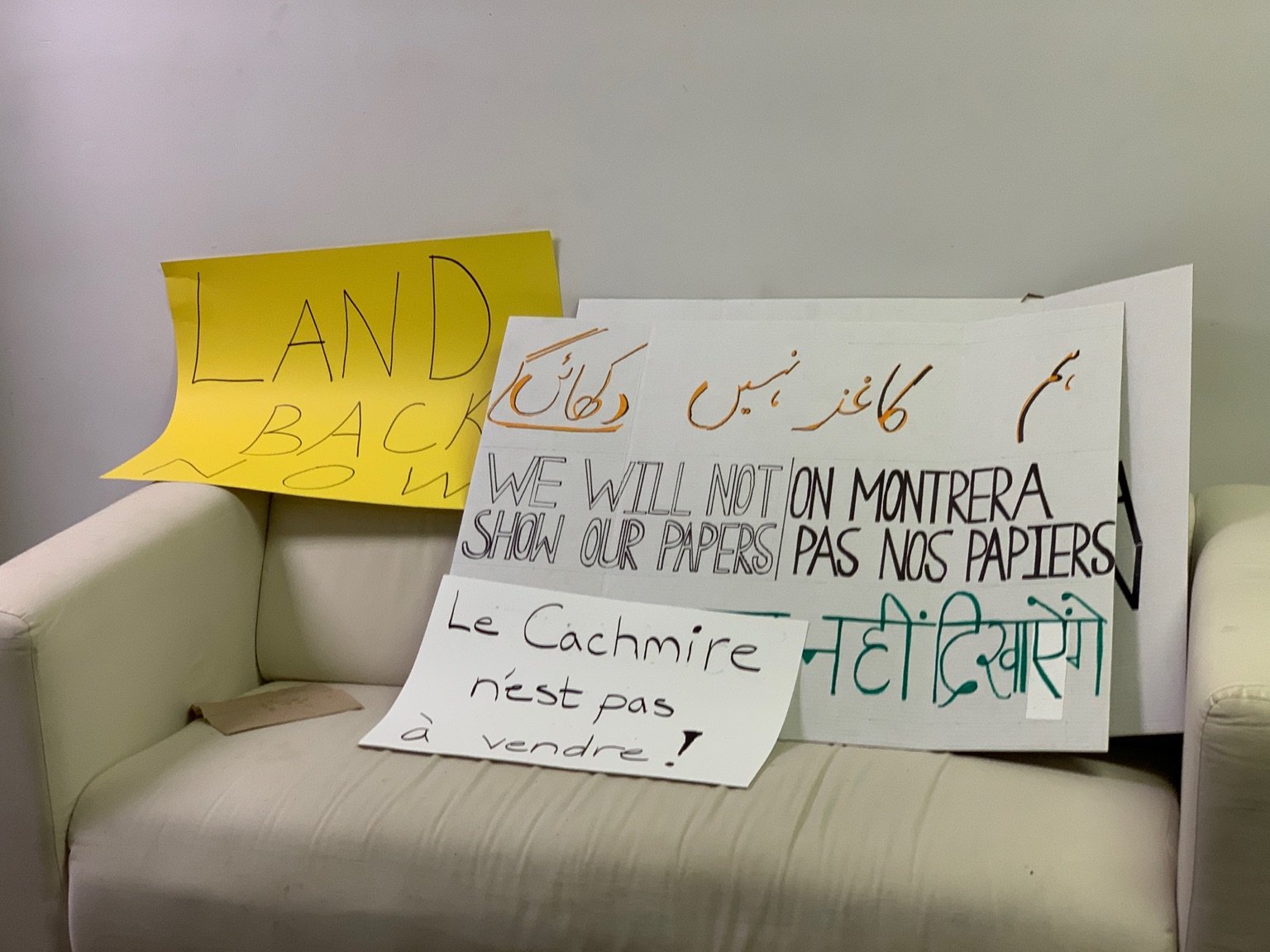Students filled a Bronfman classroom to its capacity on Jan 13. to listen to several speakers at India Civil Watch Montreal’s first series of teach-ins mapping the rise of global fascism. The event discussed the current crisis faced by Indian democracy amidst the rise of Hindu nationalism under the leadership of the Bharatiya Janata Party (BJP) and the party’s leader Nerendra Modi. The talks were facilitated by Ayesha Vemuri and Mehak Sawhey, both PhD students in Art History and Communications, and featured speakers from the Faculty of Arts.
The event was organized in support of the protests against the recent passage of the Citizenship Amendment Act (CAA) and enforcement of the National Register of Citizens (NRC). The CAA provides a fast track to Indian citizenship for religious refugees from Afghanistan, Bangladesh, and Pakistan. Notably, this act excludes Muslims from refugee status despite the countries mentioned in the legislation holding a Muslim majority population.
Swahey’s speech centred around the problems introduced by the anticipated implementation of the NRC. Already implemented in the northeastern Indian state of Assam, residents with “questionable citizenship status” have their status determined by Foreigner’s Tribunals, which Amnesty International argues places a disproportionate burden of proof on defendants to advocate for their rights.
“Legal documents are required to acquire citizenship [according to the NRC]. This is a huge problem in India where documentation is very poor. These people are now living in detention centres in India. With this situation, Genocide Watch has issued a warning for India,” Sawhey said. “When the NRC was first implemented in Assam, 1.9 million people were rendered stateless.”
The next speaker was Mritiunjoy Mohanty, an economics professor at the Indian Institute of Management Calcutta whose research focuses include political economy, structural change, and labor. Mohanty described how Modi’s policy of demonization, which banned 500 and 1000 Rupee notes, has disproportionately affected the informal sector.
“The economy is going through […] a remarkable and unprecedented slow-down,” Mohnaty said. “This is a situation where stagflation is occurring […] with almost zero real wage growth. [The informal sector] accounts for 50 per cent of [economic] output and almost 90 per cent of employment.”
Nerendra Subramanian, a McGill professor of political science, researches the intersections between caste, race, and gender in India. He spoke about the recent changes Hindu nationalism has undergone as it increases in popularity.
“[Hindu nationalism] presents [India] as a Hindu nation, even though [20] per cent [of the population] are not Hindus,” Subramanian said. “[Their] rhetoric sounds inclusionary but [their] mobilization and practice is exclusionary and periodically violent. Hindu nationalists have an ambivalent relationship with democracy […] Multicultural institutions matter in diverse societies, including in India: They helped consolidate democracy in what may be the most culturally diverse society in the world.”
The event attracted students from McGill who were engaged by recent media coverage about the Modi government. Julia Kossakowski, U2 Science, attended the event because she wanted to learn more about Indian democracy.
“I didn’t know much before coming into the talk,” Kossakowski said. “There were so many different viewpoints represented. I’m excited for the other [teach-ins] [.…] Now that I’ve started learning about [these issues], there’s no reason to stop.”








